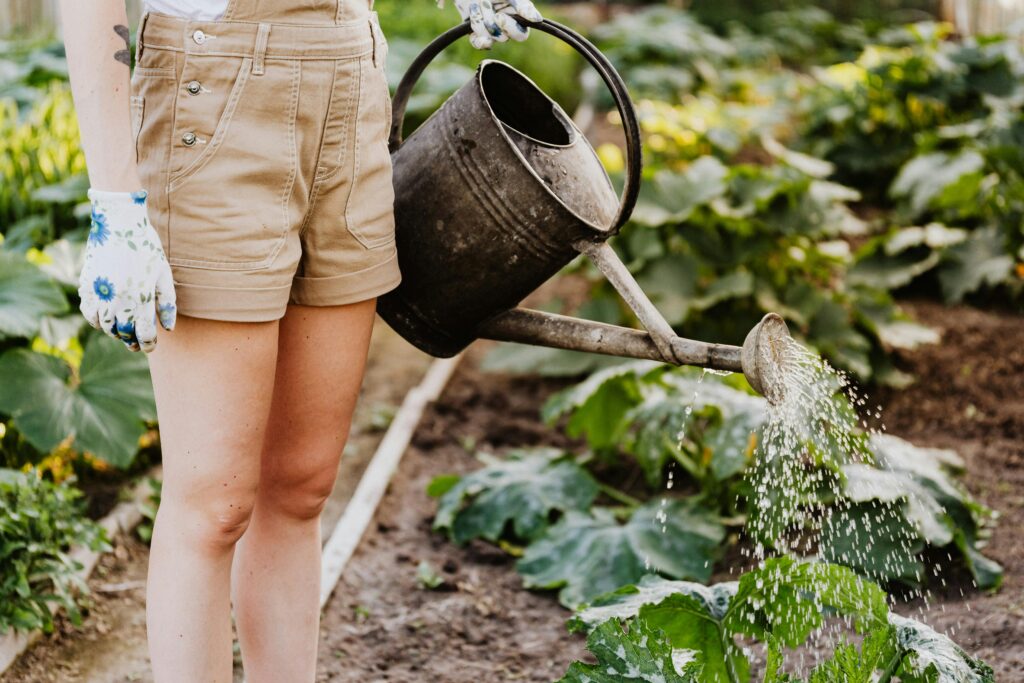Though it is impossible to remove every pest from the garden, you can limit the pest pressure by understanding what makes a plant susceptible to it. Following natural garden pest prevention methods will minimize plant damage and create an environment that will attract their predators.

Plants are more likely to succumb to pests when they are stressed. To prevent that, make sure you are planting in the right environment. For example, kale is a cool season crop and once the temperatures get too hot mine get demolished. The only thing to do is harvest what I can, feed the rest to the chickens or add it to the compost pile. Most plants need full sun and you want to make sure they are getting enough water. It is a good idea to remove any decaying leaves that might attract some negative attention.
Four Natural Garden Pest Prevention Methods
- Pick them off It can be gross, but you get over it very quickly. Every couple of days I go over my potato plants and remove any leaves I see with eggs on the back and I pluck any potato beetles or their larva.
- Netting Market gardeners use netting over their greens to prevent insects from flying in. Do this right away, before any signs of pest damage. Once the Cabbage moths and other pests have laid their eggs, you are basically just creating a safe hotel for them. I waited too long to cover my cabbage last year. I didn’t realize until I pulled off the cover and got a good look at them. Make sure to secure the netting on the ground with rocks or sandbags to stop the netting from blowing off.
- Diatomaceous Earth Applying diatomaceous earth around the base of the plant can help prevent crawling pests from getting to plants. Sprinkle the entire base of the plant with DE so that the insect can’t get by without crawling over it. Diatomaceous Earth is a natural product that is safe for humans and pets.
- Castile Soap Spray Use one tablespoon of liquid soap per 1 quart of water. You can use bar soap. Grate a tablespoon worth and simmer in the quart of water. Stir until the soap has dissolved. Once cooled, pour into a spray bottle. Soap spray works best on soft shelled insects and doesn’t seem to hurt beneficials. Spray daily until pest pressure has decreased.
Daily Checkins To Manage A Pest Infestation
Planting pollinators around your garden will encourage beneficial insects that prey on garden pests. See this post to learn more about pollinators. Some flowers and herbs such as chives, planted around vegetables can help repel pests also. Prevention plays a big part in managing pest organically. Get in the habit of walking through your garden daily. Look out for signs of plant stress or insect damage and take action right away with which ever method is the most appropriate.
